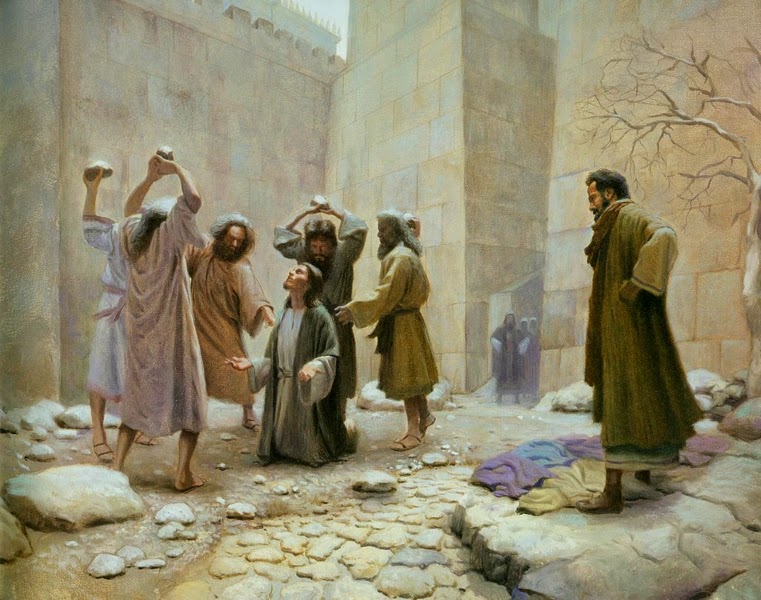To accompany your Come Follow Me study for October 23-29
In addition to reading the indicated chapters, you may wish to:
Read the applicable portion of the New Testament Institute Student Manual at :
See the following videos:
- Book of 1 Timothy Summary: A Complete Animated Overview at Book of 1 Timothy Summary: A Complete Animated Overview – YouTube
- Book of 2 Timothy Summary: A Complete Animated Overview at Book of 2 Timothy Summary: A Complete Animated Overview – YouTube
- Book of Titus Summary: A Complete Animated Overview at Book of Titus Summary: A Complete Animated Overview – YouTube
- Book of Philemon Summary: A Complete Animated Overview at Book of Philemon Summary: A Complete Animated Overview – YouTube
If you would like a Kahoot game related to this material which you could use for personal study or use with your family or your class, click here: https://create.kahoot.it/share/1-and-2-timothy-titus-philemon/f16663b2-f7a3-4b31-996d-c2d01ba13e08 . (To use it with a group, after clicking on this link, you will need to log into Kahoot, creating a free account if you have not done so previously, then click on the blue “Start” button.)
Points to Ponder in 1 and 2 Timothy; Titus; Philemon
1. What is the relationship between Paul and Timothy? How could Timothy be Paul’s “son,” when Paul wasn’t married? (1:2)
2. Why did Paul speak against “endless genealogies” when family history is so much a part of the work of the Church today? (1 Timothy 1:4; Titus 3:9)

3. How could Paul be forgiven of being an accomplice to murder? Isn’t that an unforgivable sin? Paul himself said he was the “chief” of sinners. (1 Timothy 1:15-16)

4. Why would Paul urge Timothy to pray for political leaders, when most of them were corrupt, power-hungry, and anti-Christian? (1 Timothy 2:1-2) And why would he urge Titus (Titus 3:1-2) to obey them and say good things about them? Wouldn’t it be better to try to replace them?
5. What can you find in 1 Timothy 2 that is clearly outdated?
6. What are we to understand from Paul’s assertion that “Adam was not deceived, but the woman being deceived was in the transgression”?

7. What does Paul mean in 1 Timothy 2:15 that women “would be saved in childbearing, if they continue in faith and charity and holiness with sobriety”?

8. Is it really okay to aspire to be a bishop, as Paul suggests in 1 Timothy 3:1? If so, should you tell your stake president? Or just tell the Lord?
9. Which of Paul’s items of counsel for bishops in 1 Timothy 3 and Titus 1 are still valid and which might our current leaders wish to modify in view of changed circumstances?
10. Now do the same exercise for what Paul says about deacons.
11. Why does Paul seem to say that in his day deacons had to “purchase” their office, or “good degree”? (1 Timothy 3:13)
12. What do you find most impressive about Paul’s predictions of latter-day apostasy in 1 Timothy 4:1-3?
13. What might you point out to someone who used 1 Timothy 4:8 as an excuse to eat chocolates in front of the TV rather than go to the gym?

14. Only Latter-day Saints seem to differentiate between “salvation” and “exaltation,” but there is a verse in 1 Timothy 4 which comes close to doing so. Can you find it?
15. What other passage in 1 Timothy 4 would be as good to include in a talk to Aaronic Priesthood holders as it would be in a talk to full-time missionaries?
16. What verse in 1 Timothy 5 would you pick as the single most helpful passage in that chapter for us today?
17. Was Paul concerned in 1 Timothy 5:22 that Timothy was going to lose his temper and beat someone up? If not, what is he saying?

18. What verse in 1 Timothy 5 is the most obsolete? Why?
19. If “the love of money is the root of all evil” (1 Timothy 6:10), why are so many general authorities called from among the wealthy?

20. What would you pick as your favorite two-verse passage in 2 Timothy 1, and why?
21. What is wrong with footnote 15a in 2 Timothy 2?
22. What three verse passage in 2 Timothy 2 would be especially good counsel for full-time missionaries about how to teach those who want to argue?
23. What most stands out to you in Paul’s list of characteristics of latter-day apostates in 2 Timothy 3:1-7 and 4:3-4?
24. If we haven’t suffered persecutions for our faith, is Paul telling us in 2 Timothy 3:12 that we haven’t been living a godly enough life?
25. What do you find most impressive about Paul’s “farewell testimony” in 2 Timothy 4:6-8?
26. Titus 1 is probably most noteworthy for its testimony concerning which of the following?
a. the 3 degrees of glory
b. the latter-day restoration of the gospel
c. the pre-mortal existence of man
d. the physical nature of the resurrection
27. Which of the following ideas does Paul stress most repeatedly in Titus 2?
a. sobriety
b. sanctification
c. salvation
d. sacrifice
28. What is the relationship of Onesimus to Paul? To Philemon? What is so remarkable about what Paul is asking Onesimus to do and about what he is asking Philemon to do?
Possible Answers to Points to Ponder in 1 and 2 Timothy; Titus; Philemon
1. What is the relationship between Paul and Timothy? How could Timothy be Paul’s “son,” when Paul wasn’t married? (1:2)
Timothy is not Paul’s biological son but a son in a symbolic and spiritual sense. He uses the same language in referring to Titus and Onesimus. The following is a good summary, compliments of ChatGPT:
“In 1 Timothy 1:2, Paul refers to Timothy as ‘my own son in the faith.’ This phrase reflects the close relationship that existed between Paul and Timothy.
“In the context of the early Christian church, “son” was often used metaphorically to describe a disciple or follower who had been spiritually “born” into the faith through the teachings and guidance of a mentor or leader.
“Paul had taken Timothy under his wing during his travels, and Timothy had become a loyal and trusted companion in the ministry. Through this relationship, Timothy had grown in his faith and become a leader in his own right, preaching and teaching the gospel to others.
“So when Paul calls Timothy ‘my own son in the faith,’ he is acknowledging their deep spiritual bond and the important role that Timothy played in the spread of Christianity.”
2. Why did Paul speak against “endless genealogies” when family history is so much a part of the work of the Church today? (1 Timothy 1:4; Titus 3:9)
The “endless genealogies” to which Paul objected had nothing in common with our current family history research, which is designed to provide saving ordinances for our deceased relatives. While the exact nature of these genealogies to which Paul referred is not clear, scholars have proposed several possible interpretations based on the historical and cultural context of the time.
One interpretation is that these genealogies were related to Jewish ancestry and lineage. In the first century, many Jews placed great importance on their ancestry and were proud of their family heritage. Some Jewish Christians may have been overly concerned with tracing their ancestry back to Abraham and other biblical figures, leading to arguments and debates about who was truly “chosen” by God.
Another interpretation is that the genealogies referred to were part of Gnostic teachings that were popular at the time. Gnosticism was a mystical belief system that emphasized secret knowledge and spiritual enlightenment. Some Gnostics believed in a complex system of emanations and aeons, which could be traced through genealogies of divine beings. Paul may have been warning Timothy against the confusing and speculative nature of these teachings, which were not grounded in the truth of the gospel.
Regardless of the specific nature of the genealogies, Paul’s main concern was that they were distracting people from the central message of the gospel and leading them away from the truth. He encouraged Timothy to focus on teaching sound doctrine and avoiding arguments and speculations that did not edify or build up the church.
3. How could Paul be forgiven of being an accomplice to murder? Isn’t that an unforgivable sin? Paul himself said he was the “chief” of sinners. (1 Timothy 1:15-16)
As D&C 42:18-19 makes clear, murder is unforgivable only for enlightened Church members. The converted Lamanite king in Alma 24:10 thanked God that he had “forgiven us of those our many sins and murders which we have committed.” He goes on to say it was not easy for them to repent sufficiently to be forgiven, but it was possible, just as it was for Paul, who participated in Stephen’s martyrdom without realizing what he was doing.
4. Why would Paul urge Timothy to pray for political leaders, when most of them were corrupt, power-hungry, and anti-Christian? (1 Timothy 2:1-2) And why would he urge Titus (Titus 3:1-2) to obey them and say good things about them? Wouldn’t it be better to try to replace them?
Paul isn’t proposing praying that such leaders be admitted unrepentant into the kingdom of heaven but that we pray that they may permit the righteous to “lead a quiet and peaceable life in all godliness and honesty.” Appropriate prayers, of course, could include a petition that the leaders be blessed with wisdom and a disposition to be kind to those over whom they ruled. And prayers that the gospel might someday penetrate their hearts would never be out of order, as the Book of Mormon account of the conversion of Lamanite leadership on two different occasions attests. His counsel to Titus to obey and speak well of leaders would make it more likely that the church could grow without unnecessary opposition from those in a position to cause it serious problems. The authorities Paul spoke of were not elected officials, such as we have today, who could feasibly be replaced in another two or four years. They were autocrats who could be replaced only through revolution, and spiritual salvation was a much higher priority to Paul (and no doubt to God) than political freedom, however desirable the latter might have been.
5. What can you find in 1 Timothy 2 that is clearly outdated?
Verse 9 has been superseded to permit braided hair and jewelry a little more prominent than Paul would have preferred in his day, though our leaders still counsel both men and women to not be overly showy in their dress and adornment.
Verses 11-12, which according to the customs of the time forbade women to teach or speak in church have clearly been replaced, with women prominently speaking and praying even in general conference and being among the best teachers and speakers in every congregation.
6. What are we to understand from Paul’s assertion that “Adam was not deceived, but the woman being deceived was in the transgression”?
Latter-day Saints are unique in the Christian world in viewing the fall of Adam and Eve as a glorious necessity rather than a tragedy. But occasionally Latter-day Saints may go overboard in the other direction and impute some special wisdom and foresight to Eve that she did not in fact possess until after partaking of the forbidden fruit, which was designated as the fruit of the tree of knowledge of good and evil. Neither Adam nor Eve had ever encountered a talking snake before—especially one which lied. When Eve was the first to partake of the forbidden fruit it was because she was legitimately deceived by Satan and was innocent of any moral sin, just as a two-year-old child would be who accepted candy from a stranger. Once she had partaken, however, she began to comprehend the consequences of her action. She would necessarily be cast out of the garden. And if Adam remained behind, they would be unable to comply with God’s command to multiply and replenish the earth. Adam now had to do some prioritizing and decide if it was more important to obey the commandment not to partake of the fruit of the tree of knowledge of good and evil or the one which said to have children. Unlike Eve, Adam partook not because Satan deceived him but because he and Eve now could see the impossibility of keeping the greater commandment without breaking the lesser. Latter-day Saints view this as a technical “transgression” but not as a “sin” in the sense of his having wickedly gone against what God most wanted him to do. Both Adam and Eve did precisely what God desired, and He set up the circumstances which led to it, including giving Satan free reign to tempt. To view the fall otherwise is to give God very little credit, if His plan for the eternal happiness of all mankind could be thwarted so quickly and unexpectedly by Satan.
7. What does Paul mean in 1 Timothy 2:15 that women “would be saved in childbearing, if they continue in faith and charity and holiness with sobriety”?
A summary compliments of ChatGMT offers the following:
“The meaning of 1 Timothy 2:15 has been the subject of much debate among biblical scholars, and there are several interpretations of this passage. Here are some of the main explanations that scholars have put forward:
- a. “Physical childbirth as a means of atonement: Some scholars argue that Paul is saying that women can find salvation through the physical act of childbirth. This interpretation suggests that Paul is drawing on the idea that women were punished for their role in the fall of humanity in Genesis 3:16, and that the pain of childbirth serves as a form of atonement for that sin.
- b. “Spiritual childbirth through faith in Christ: Another interpretation is that Paul is using childbirth as a metaphor for spiritual rebirth through faith in Christ. In this view, the passage is not meant to be taken literally, but rather as a way of emphasizing the importance of faith for both men and women.
- c. “A specific reference to Eve: Some scholars argue that Paul is referring specifically to Eve in this passage, and that he is suggesting that women can be saved from the effects of Eve’s sin through childbirth. This interpretation is based on the idea that Eve’s disobedience led to the fall of humanity, and that women can be redeemed through the act of giving birth.
- d. “A warning against false teaching: Another interpretation is that Paul is using this passage as a warning against false teaching, particularly teachings that would lead women away from their God-given role as wives and mothers. In this view, the passage is meant to encourage women to embrace their roles as mothers and to reject teachings that would lead them astray.”
Most Latter-day Saints would probably not be comfortable with theories “a” and “c” above. Another possibility, advocated by several translations, is that Paul meant that righteous women could generally expect to come through childbearing without losing their lives in the process. I personally find this proposal rather attractive. When we meet Paul, we can ask him what he had in mind.
8. Is it really okay to aspire to be a bishop, as Paul suggests in 1 Timothy 3:1? If so, should you tell your stake president? Or just tell the Lord?
The propriety of such an aspiration would depend on why one wanted to be a bishop. If it was to be honored by the congregation and have everyone call him “Bishop,” it would definitely be wrong. But if one genuinely and humbly wanted to serve the Lord in a demanding position and had the time and talents to do so, there would be nothing wrong with looking forward to the possibility of being called. Certainly, it would be sad if every new bishop viewed the call as a calamity. I think most stake presidents would shy away from recommending to the First Presidency the call of a bishop who had approached him asking to be considered. But there would be nothing wrong with letting your leaders know your circumstances and availability for service in whatever capacity the Lord might desire.
9. Which of Paul’s items of counsel for bishops in 1 Timothy 3 and Titus 1 are still valid and which might our current leaders wish to modify in view of changed circumstances?
It would still be desirable that bishops be:
- Blameless
- Married
- Vigilant
- Sober
- Of good behavior
- Hospitable
- Good teachers
- Not indulgent
- Not violent or possessed of a bad temper
- Not greedy of filthy lucre, nor otherwise covetous
- Patient
- Not a “novice,” but having some previous experience in leadership
- Be well thought of by non-members
Possible modifications if Paul were to write on the same subject today:
- Verses 4 and 5 might change “rule” to “preside,” and “having his children in subjection with all gravity” might be modified to sound less tyrannical. Maybe “being a good father to his children” would express it adequately.
10. Now do the same exercise for what Paul says about deacons.
Deacons in Paul’s day (and in early days of this dispensation) were married men, not 12- and 13-year-old boys. Most of the changes in counsel would be because of that. Still current would be the expectation that deacons be:
- Appropriately sober and serious about their callings. (We probably wouldn’t insist they be “grave,” as that word is generally understood, or there would be massive vacancies in virtually every deacons’ quorum.)
- Not “doubletongued” (deceitful)
- Not indulgent in vices contrary to the Word of Wisdom
- Not greedy
- Living so as to have pure consciences
- Passing such tests prior to ordination as their local leaders deem appropriate.
Obsolete portions of Paul’s counsel concerning deacons would be:
- The expectation that deacons be the husbands of one wife, ruling their children and their houses well.
11. Why does Paul seem to say that in his day deacons had to “purchase” their office, or “good degree”? (1 Timothy 3:13)
The related footnote clarifies that the word translated as “purchase” in the King James Version means “earn,” or “acquire” for themselves a good position. We would hope today’s deacons would so consider their callings.
12. What do you find most impressive about Paul’s predictions of latter-day apostasy in 1 Timothy 4:1-3?
Your choice. I personally feel that Paul well described both the prevalent secular philosophy of today as well as some specific mistakes of misguided religious fanatics. For example:
- Much of society seems to have had their consciences “seared with a hot iron.”
- There are plenty of “doctrines of devils” going around.
- Paul clarifies that it is a departure from the true faith to:
- Forbid to marry
- Command to abstain from certain foods (above and beyond what the Lord’s revealed Word of Wisdom would forbid, of course)
13. What might you point out to someone who used 1 Timothy 4:8 as an excuse to eat chocolates in front of the TV rather than go to the gym?
We might first agree that compared to keeping our spiritual lives in good order, bodily exercise is indeed of lesser importance. But that doesn’t mean it isn’t worth paying attention to it. This is the same Paul who elsewhere speaks of our bodies as being “temples” in which the Spirit of the Lord should be pleased to dwell. Just as the Church gives strict attention to keeping our literal temples beautiful and in good repair, so should we want to keep our bodies healthy.

14. Only Latter-day Saints seem to differentiate between “salvation” and “exaltation,” but there is a verse in 1 Timothy 4 which comes close to doing so. Can you find it?
Verse 10 mentions that God is the “Saviour of all men, specially of those that believe,” suggesting that it is one thing to be “saved” in the sense that all men will be (resurrected), and quite another to receive the special blessings that come only to those who believe (and act upon that belief). It might be worth mentioning here that virtually every other scriptural reference to “salvation” means the latter—what Latter-day Saints typically call “exaltation.” Mere resurrection is “salvation” from eternal physical death, but it won’t be much of an advantage if one doesn’t qualify through his righteousness for the fulness of the eternal blessings God has designed for the faithful.
15. What other passage in 1 Timothy 4 would be as good to include in a talk to Aaronic Priesthood holders as it would be in a talk to full-time missionaries?
Verses 12-14 seem to me to be in that category, with their exhortation to “let no man despise thy youth,” and the following counsel about being an example and developing the gift of prophecy.
16. What verse in 1 Timothy 5 would you pick as the single most helpful passage in that chapter for us today?
Your choice. For me it would be verse 8, which emphasizes the importance of providing both economically, emotionally, and spiritually for the needs of our families.
17. Was Paul concerned in 1 Timothy 5:22 that Timothy was going to lose his temper and beat someone up? If not, what is he saying?
Paul here is counseling Timothy against ordaining someone to the priesthood without his being adequately prepared.
18. What verse in 1 Timothy 5 is the most obsolete? Why?
It has to be verse 23, which said, “Drink no longer water, but use a little wine for thy stomach’s sake and thine often infirmities.” In Paul’s day, the water was quite likely to be contaminated, and there was no ancient equivalent of today’s Word of Wisdom to prevent Timothy’s using a little wine, which would probably have been better for him, at least physically. Today, of course, there is a much greater likelihood of one’s having access to pure drinking water, and the Lord has commanded His saints to forgo the use of all alcoholic beverages.
19. If “the love of money is the root of all evil” (1 Timothy 6:10), why are so many general authorities called from among the wealthy?
Paul didn’t say there is anything wrong with money per se, only about the inordinate love of it. No general authority was ever called because of his wealth. But many have been called because in addition to being righteous they had qualities of industry, intelligence, and character which had resulted in their becoming well to do but would also make them effective leaders in the Church.
20. What would you pick as your favorite two-verse passage in 2 Timothy 1, and why?
Your choice. Mine would be verses 6-7, where Paul encourages Timothy to “stir up the gift of God, which is in thee by the putting on of my hands,” and reminds him that “God hath not given us the spirit of fear; but of power, and of love, and of a sound mind.” While footnote 6a refers us to passages about magnifying the priesthood, I think it equally likely that Paul was referring to the gift of the Holy Ghost, which is the source of courage, love, and a sound mind. The two interpretations would not be mutually exclusive, of course.
21. What is wrong with footnote 15a in 2 Timothy 2?
The footnote suggests that Paul was talking about studying the scriptures, but the Greek word translated as “study” in the King James Version really means “to hasten, make haste, or to exert one’s self, endeavour, or give diligence.” In addition to consulting alternate translations, you may often enjoy looking at Strong’s Exhaustive Concordance, available online at New Testament Greek Lexicon – King James Version (biblestudytools.com) to find out what a given word meant in the original Greek or Hebrew. Of course, it is unlikely that anyone was ever harmed by misunderstanding this particular passage! But 2 Timothy 3:15-17 is a much better passage to emphasize the value of scripture study, which Paul there is clearly recommending.
22. What three verse passage in 2 Timothy 2 would be especially good counsel for full-time missionaries about how to teach those who want to argue?
For me it would be verses 23-25, which urge such teachers to avoid “foolish and unlearned questions” and to avoid strife, being gentle, patient, and meek in instructing those who “oppose themselves.”
23. What most stands out to you in Paul’s list of characteristics of latter-day apostates in 2 Timothy 3:1-7 and 4:3-4?
Your choice. My list would include:
- Disobedience to parents and lack of natural affection.
- Lovers of pleasures more than lovers of God.
- Having a form of godliness, but denying the power thereof, or spiritual gifts whereby godly power comes.
- Ever learning but never able to come to the knowledge of the truth.
- People would look for teachers and ministers who would agree with their own preconceived ideas.
24. If we haven’t suffered persecutions for our faith, is Paul telling us in 2 Timothy 3:12 that we haven’t been living a godly enough life?
That passage may have been truer in Paul’s day than it is in ours. But such days could come again. And even those who have not to this point suffered serious “persecution,” as Paul defines it, have probably been ridiculed and belittled and even discriminated against for their faith, whether they are aware of it or not.
25. What do you find most impressive about Paul’s “farewell testimony” in 2 Timothy 4:6-8?
We understand this to be in the last chapter of Paul’s last epistle. He is confident in the face of impending execution. He not only knows that Jesus lives and has suffered for him but that he, Paul, has successfully fought a good fight, finished his assigned mission, and kept the faith. He evidently has had it revealed to him that there is a crown of righteousness waiting for him. There is no doubt in his mind. He has had his calling and election made sure.
26. Titus 1 is probably most noteworthy for its testimony concerning which of the following?
a. the 3 degrees of glory
b. the latter-day restoration of the gospel
c. the pre-mortal existence of man
d. the physical nature of the resurrection
I would say “c,” the pre-mortal existence of man, based on verse 2, which says that God promised eternal life before the world began. If there were no pre-mortal existence, to whom would God have made such a promise?
27. Which of the following ideas does Paul stress most repeatedly in Titus 2?
a. sobriety
b. sanctification
c. salvation
d. sacrifice
The answer has to be “a,” sobriety, which is included in his list of things to teach to aged men, aged women, young women, and young men, and is mentioned again in verse 7 as “gravity” and in verse 12 once more. Clearly, Paul saw the need for saints to be serious about the gospel.
28. What is the relationship of Onesimus to Paul? To Philemon? What is so remarkable about what Paul is asking Onesimus to do and about what he is asking Philemon to do?
Onesimus was Philemon’s runaway slave, who had been converted to the gospel through his association with Paul. Paul was asking Onesimus to return voluntarily to Philemon, even though under normal circumstances he might have been risking serious punishment at the hands of his former master. And Paul was asking Philemon to receive Onesimus back, not as a slave but as a brother in the gospel. We don’t know the outcome of the story, but we like to think it had a happy ending for both Onesimus and Philemon, given the change of heart which the gospel can bring.

